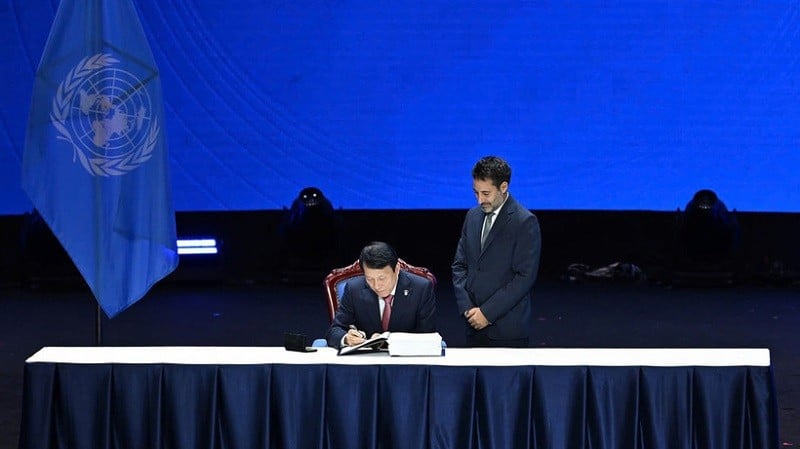
Cyberspace today has become the new “frontier” of the modern world - where data, transactions, and information move at the speed of light, where national borders are only symbolic.
Along with the great benefits, cyber security threats are increasing rapidly, from personal data theft, attacks on critical infrastructure to information manipulation and digital espionage. Hundreds of thousands of cyber attacks are recorded every day globally, causing economic losses of trillions of dollars each year.
In that context, the need to build an international cooperation mechanism to respond to cybercrime in a unified manner has become more urgent than ever. After many years of negotiation, in December 2024, the United Nations General Assembly officially adopted the International Convention on the Prevention and Combating of Cybercrime, with a high consensus among member states.
In particular, Vietnam is honored to be the host country of the Opening Ceremony and High-Level Conference of the United Nations Convention against Cybercrime, held in Hanoi on October 25-26, 2025.
The event brought together more than 2,500 delegates from 119 countries and territories, along with representatives from nearly 150 international organizations, technology businesses, law enforcement agencies and experts.
72 countries signed the Convention at the opening ceremony, a record number demonstrating the strong consensus and determination of the international community in building a safe, trustworthy and humane cyber environment. Hanoi, thereby, became a symbol of global efforts in initiating a new digital order based on law, cooperation and trust.

Towards a safe and humane cyberspace
The Hanoi Convention, consisting of 9 chapters and 71 articles, is the first international legal document to comprehensively regulate crimes in cyberspace. The highlight of the Convention is its comprehensive approach, balancing the two goals of ensuring cyber security and protecting human rights.
Specifically, the Convention requires member countries to internalize cybercrimes in their national legal systems, including unauthorized access, intrusion into data systems, denial of service attacks, spreading malware, electronic fraud, money laundering, or spreading child abuse content.
This clear criminalization helps to eliminate legal “gray areas,” creating consistency in prosecution and investigative cooperation between countries.
The Convention also establishes flexible jurisdiction rules, allowing a State to deal with an offence if it occurs on its territory, is committed by its nationals, or has consequences for the national interest.
Where there is overlap, the parties are advised to consult to avoid legal conflicts and ensure that justice is not overlooked.
Another important advancement is the mechanism for handling electronic evidence across borders. In the age of globally distributed data, criminal evidence often resides in different countries, making investigations difficult.
The Hanoi Convention creates a legal framework for the preservation, collection, and exchange of electronic data within the framework of law. At the same time, it strictly binds the right to privacy, the protection of personal data, and the supervision of an independent judiciary.
The convention also emphasizes international cooperation as a central pillar. A 24/7 communication network is set up to ensure rapid response between countries when detecting, investigating or preventing cybercrime. Law enforcement agencies, international organizations and technology companies are encouraged to coordinate, share information, provide technical assistance and build joint capacity.
In addition to criminal provisions, the Hanoi Convention also focuses on prevention and human resource training. Countries are encouraged to develop secure digital infrastructure, raise public awareness, build educational programs and public-private partnerships in responding to cyber incidents.
This reflects the philosophy of “prevention is better than cure”, putting people at the center of cybersecurity, considering knowledge and cooperation as the key to protecting digital space.
From Hanoi spreading the spirit of global cooperation
The choice of Hanoi as the venue for the signing of the Convention is significant beyond the scope of an international event. It is a recognition of Vietnam’s role in promoting dialogue, cooperation and shared global responsibility on cybersecurity.
During the negotiation process, Vietnam actively participated and contributed many balanced initiatives, especially the proposal to ensure harmony between protecting national security and respecting individual privacy.

At the signing conference, the United Nations representative highly appreciated Vietnam as not only the host country, but also the "bridge builder" between different viewpoints, helping the Convention achieve high consensus.
In this role, Vietnam once again affirms its position as an active and responsible member of the international community. From hosting forums on digital transformation, to leading discussions on data protection and digital sovereignty, Vietnam is emerging as a hub for regional cooperation in the field of cybersecurity.
What made the Hanoi Convention signing ceremony a success was the cooperation of the domestic business community. The support of strategic partners such as VietinBank, PVN, EVN, MB Bank, Agribank, SSI, FPT, VPBank, Gelex, Vietnam Airlines, VIX, BIDV, Viettel, OKX, VNPT, Napas not only contributed to ensuring the event ran smoothly, but also demonstrated the spirit of social responsibility and commitment to accompany the Government in building a safe and sustainable network environment.
These businesses, each in a different field, share the belief that cybersecurity is not just a technical issue, but the foundation of sustainable development and national prosperity.
Their presence in major international activities such as the Hanoi Convention is also a testament to their long-term vision, where the private sector becomes a pioneer in public-private cooperation, sharing resources, knowledge and responsibilities for a healthy digital space.
The Hanoi Convention is considered a historic turning point in the journey to build a global legal order for cyberspace. When the Convention officially comes into effect, it is expected that after 40 countries have ratified it, countries will enter the implementation and internalization phase, bringing the provisions of the Convention into the national legal system.
For Vietnam, this is not only an opportunity to strengthen the legal framework, but also a driving force to promote a safe and sustainable digital transformation strategy. Participation in and implementation of the Hanoi Convention will help enhance digital forensic capacity, strengthen international cooperation, and create a transparent and trustworthy environment for e-commerce and online services.
On a global scale, the Hanoi Convention opens up the prospect of a “common set of rules” where countries, whether developed or developing, have equal rights and responsibilities in protecting cyberspace.
It also contributes to reshaping the approach to cybersecurity: instead of pursuing attack and defense, the world is moving towards a model of cooperation, sharing and proactive prevention.
The Hanoi Convention is not only a legal document, but also a symbol of an era where technology is oriented to serve people, and where trust is considered the most precious resource in the digital age. From Hanoi, a strong message has been sent: only through dialogue, cooperation and shared responsibility can the world protect cyberspace, making it safe, humane and sustainable.
Source: https://nhandan.vn/cong-uoc-ha-noi-va-su-menh-ket-noi-niem-tin-so-post920429.html




![[Photo] Opening of the 14th Conference of the 13th Party Central Committee](https://vphoto.vietnam.vn/thumb/1200x675/vietnam/resource/IMAGE/2025/11/05/1762310995216_a5-bnd-5742-5255-jpg.webp)


![[Photo] Panorama of the Patriotic Emulation Congress of Nhan Dan Newspaper for the period 2025-2030](https://vphoto.vietnam.vn/thumb/1200x675/vietnam/resource/IMAGE/2025/11/04/1762252775462_ndo_br_dhthiduayeuncbaond-6125-jpg.webp)


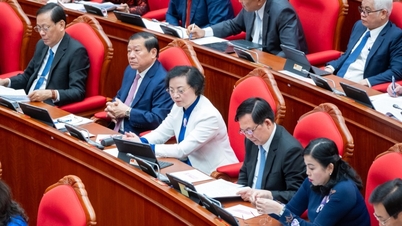

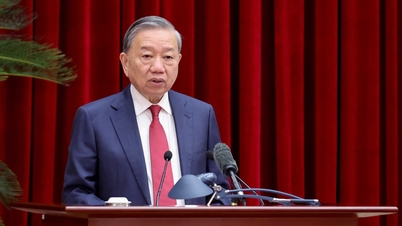
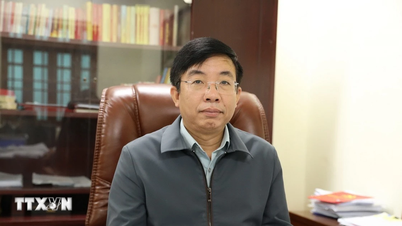


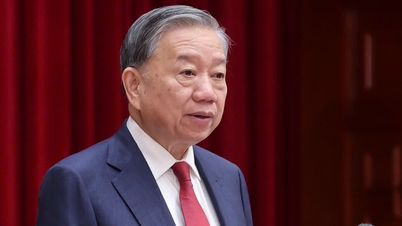






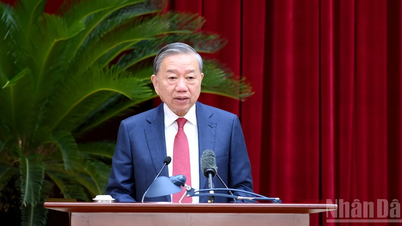
![[Photo] Opening of the 14th Conference of the 13th Party Central Committee](https://vphoto.vietnam.vn/thumb/402x226/vietnam/resource/IMAGE/2025/11/05/1762310995216_a5-bnd-5742-5255-jpg.webp)
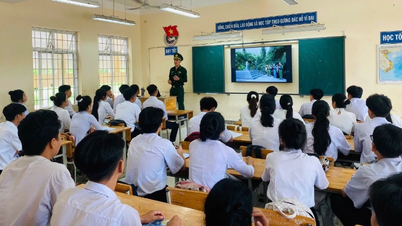




















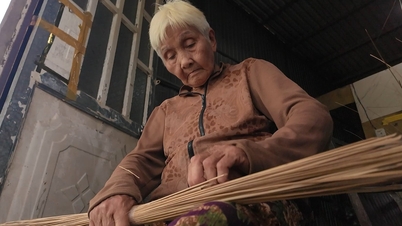













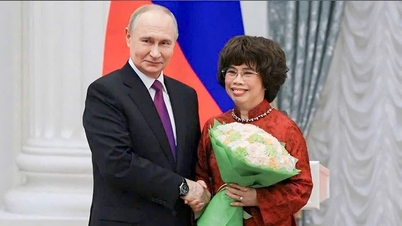


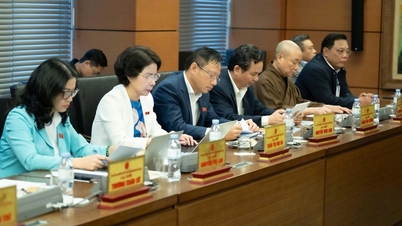

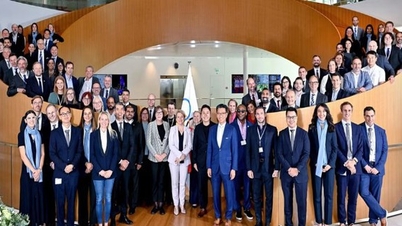

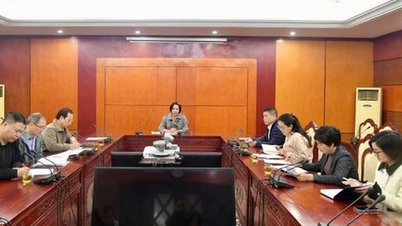

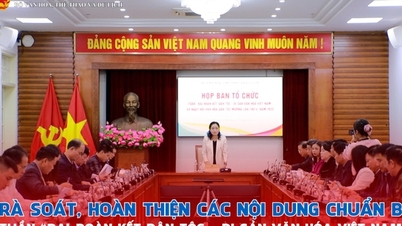
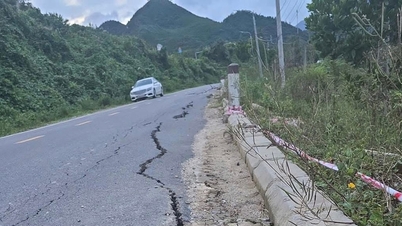

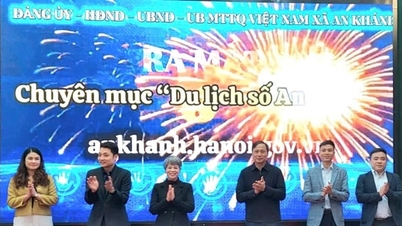

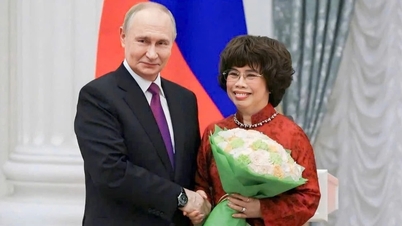

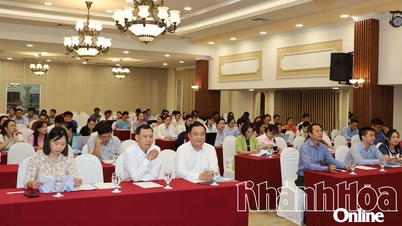



















Comment (0)